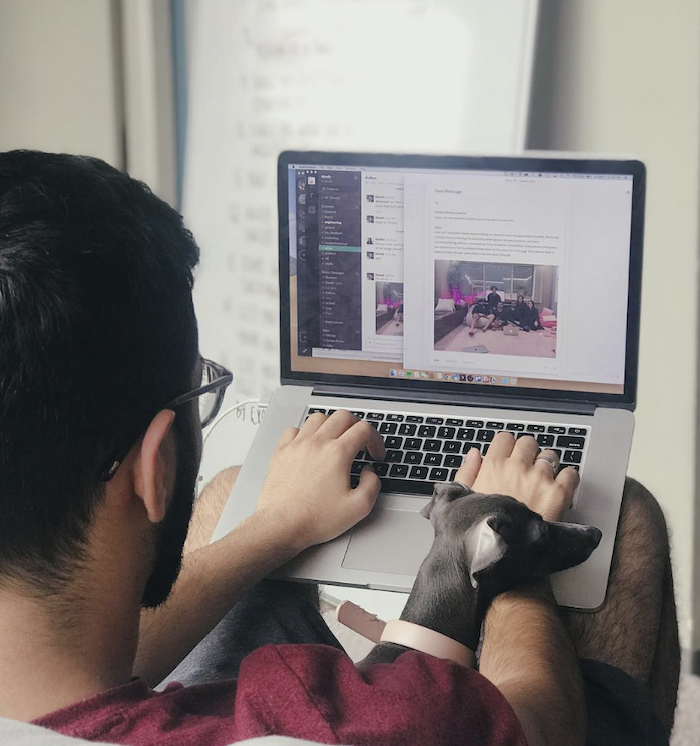Former students launch University-wide dating app

Inspired by a previous on-demand restaurant service app he designed, Leor Massachi, one of the co-founders of Dandy, wanted to find a way for dating app users to connect in real life faster than they would traditional dating apps.
“The problem [Dandy] is solving is the significant time and effort required to actually meet up, where it takes weeks on conventional dating apps to meet up,” Massachi said. “On ours, it takes days. It’s a much more enjoyable, efficient process that actually works.”
The Dandy team comprises Massachi, co-founder Daniel Newman, head of marketing Kaitlyn Rassi, two non-USC engineers and creative director Caroline Moore, a senior majoring in computer science and business administration. Both co-founders would be current seniors in the Marshall School of Business, but they left the University this year to pursue Dandy full-time.
Rassi said the app is currently targeting local communities and is catered toward college students — but not all of them. Currently, Dandy’s pairing algorithm does not take into account those in the LGBTQ+ community; the app assumes users are straight and doesn’t allow them to change their sexual preferences.
“Right now, we’re targeting college students because they’re the most socially charged,” Rassi said. “They live super close to one another, and they’re open to new experiences, which all align with our brand values. We have plans in the future to open it up to the public.”
Newman said the university-only approach eliminates the need for filtering options like age, distance and sexual orientation.
“We’re starting only with straight users at this time and the simple reason is [cash flow],” Newman said. “Given that we’re launching in a hyperlocal market, we won’t be able to open up Dandy to more communities until we have a much larger user base that can actually have self-sustaining live sessions for other people.”
Users can only access Dandy when they are notified that the app is going live. Each user is then randomly paired with another student who attends the same university. When the individual’s photo pops up on their screen, the user gets five seconds to like the person.
“If you both like each other, you go onto a three-minute chat, where you get to talk back and forth and see if you have any similarities,” Newman said. “If you connect after that, you can choose to exchange numbers and go straight to iMessage to meet up in the real world.”
According to Newman, the app was not modeled after popular dating apps like Tinder and Bumble, which offer a more passive online dating experience. He said Dandy is more engaging for students because it is only open during certain timeframes.
“The whole idea is that instead of swiping endlessly on other dating apps for hours on end, our app only goes live for three minutes a day,” Newman said. “It’s a heart-racing experience that supplements real life. It’s not a replacement to real life like many other apps.”
Rassi said the app encourages users to go out and meet new people after introducing them for a limited amount of time when the app goes live.
“Our slogan for the launch is ‘Go Out Tonight,’ just really encouraging people to get out there, try new experiences, meet new people, get out into the real world and off your phone,” Rassi said.
Rachel Holzer, a freshman majoring in political science and international relations, identifies as bisexual and said she would not use an app that doesn’t allow people who identify as queer to participate.
“As a bisexual woman, I would definitely never use an app that would only match me to men because I’m not only looking for men,” Holzer said. “The intentions of the app creators probably weren’t to be homophobic, but by not allowing same-sex matches to occur, it’s outright discriminatory.”

